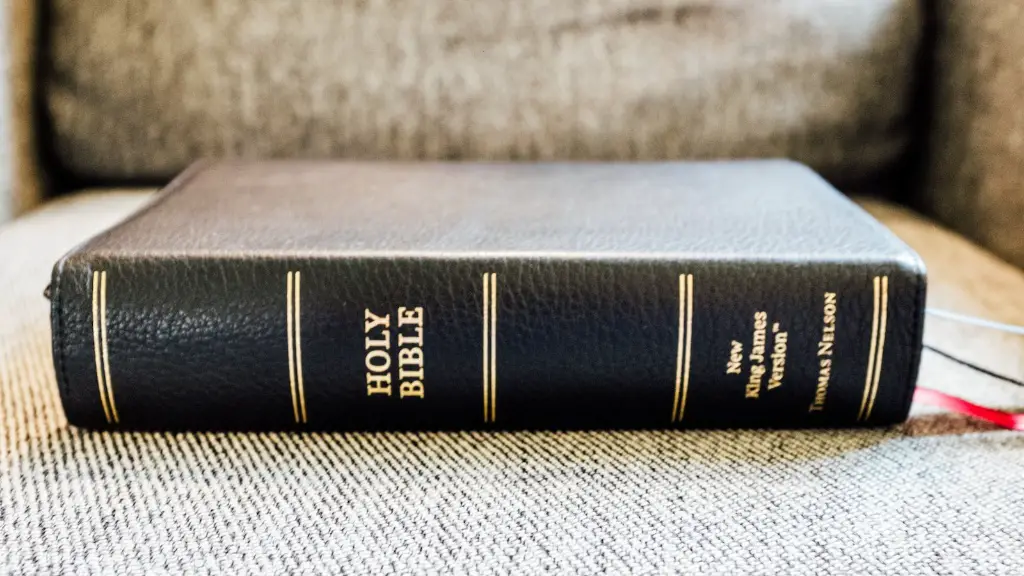Who Was Isaiah In The Bible?
The book of Isaiah, found within The Old Testament of the Bible is attributed to the Prophet Isaiah. Considered to have lived during the late 8th century in Jerusalem, Isaiah’s career was one of religious leadership, civil service and prophesy – making him one of the most influential figures in Jewish history. Discussed in great detail in the book by his namesake, his impact on both Jewish and Christian religion is felt to this day.
As a counsellor to King Hezekiah, Isaiah provided both wisdom and leadership in times of trouble and distress. It was during his tenure to the King Isaiah made significant efforts to reform the religious practices of the kingdom, seeking to cleanse it from the influences of false idols and paganism. His campaigns to encourage true worship of Yahweh and moral uprightness led to him to become revered as a great prophet in Jewish culture, expanding and enforcing the covenantal relationship between God and His people.
But it was through Isaiah’s powerful prophecies as to how the Kingdom of Judah will return from exile that he has become most well-known. With stories of comfort and deliverance, Isaiah is remembered for encouraging Jews to have faith despite adversity and his many messages of hope have been quoted by Jews and Christians alike since his writings were first established. It is through his metaphors of light, judgement and Gods imminent glory that Isaiah has become an enduring icon of religious history.
Looking at the context of the time, it appears Isaiah had a great vision of unity amongst Jews and Christians. In his now famed prediction, Isaiah speaks of a time when Jews and gentiles shall come together as one people under God – a sentiment which is still echoed in religious sermons today. As a bridge between generations and cultures, to this day Isaiah is revered for knowledge, outspokenness, and his commitment to ethical living.
It is through positive messages of tolerance and understanding that Isaiah has won the hearts of so many for centuries. Indeed, according to religious experts, it is this quality which stands him out from many other prophets of the Bible. Through a combination of determination, vision and faith – he has brought people closer to God, and is remembered fondly by many as a spirit that never died.
Isaiah’s Messages of Comfort and Deliverance
Perhaps the most captivating aspect of Isaiah’s work is his use of poetic language and pictures to comfort the Jewish people at a time of great distress. He used imagery such as the humble vineyard and almond tree to encourage faith, and God’s glory was emphasized through his repeated references to Jerusalem.
Central to many of Isaiah’s prophecies was a message of comfort and deliverance for the poor and vulnerable. One of his most poignant predictions is how justice will be served and those who were overlooked will be brought to safety – bringing comfort and relief to many of his disadvantaged followers. This quality of heather and care was unique amongst his contemporaries, and is still admired today.
Moreover, Isaiah encouraged further demonstration of God’s mercy through his comparison of the restoration of Israel to a mother nursing her infant. This reference to Esther symbolized a powerful call for fortitude and strength in the face of adversity, and acts as a reminder of hope even in the midst of strife.
Isaiah’s Impact on Theology
Isaiah’s message of peace, justice, and a continued relationship with God has had a tremendous and lasting impact on religious perception to this day. Often referred to as one of the first to recognize and accept Jesus as savior, Isaiah’s influence on the early Christian Church was such that some bishops argued that he should be classed as an apostle.
Moreover, theologians will often draw on Isaiah’s work when discussing the formation of the New Testament, most notably in regards to the doctrine of God’s imminence. It was Isaiah’s numerous references God’s glorious and ultimate presence that gave this teaching traction – with his words offering support and comfort to those at the time.
Furthermore, it is through Isaiah’s teachings that many understand and appreciate God’s relationship with humans. Kings and queens sought his words of advice, and could look to Isaiah to provide spiritual guidance. Even being exiled to Babylon and being forced to watch Jerusalem in ruins, Isaiah stands out as a source of inspiration and an authority on the covenantal relationship between God and His people.
Isaiah’s Place In History
Today, Isaiah is remembered as one of the most prominent figures in Old Testament and is honoured for his significant contributions to both Jewish and Christian religious history. Although it is still debated whether Isaiah himself wrote the prophecies attributed to him, his influence and importance is undeniable.
In Jewish culture, he is often referred to as the “Prince of Prophecy” and his work is deeply ingrained in daily spiritual practice. Indeed, there are some who argue that without the teachings of Isaiah, many aspects of Jewish religious life would be very different. The same can also be said for Christianity, where Isaiah’s words are heavily embedded in centuries of biblical study.
Undoubtedly a giant of religious history, Isaiah continues to have a lasting impact around the world. His writings of promise and hope have been revered by millions of loyal followers and his messages of peace, justice, and virtue have been retold and reaffirmed time and time again.
Isaiah’s Impact on Other Faiths
In addition to his undeniable impact on Judaism and Christianity, it is also believed Isaiah made a lasting impression on other Abrahamic faiths. His teachings of one God have impacted those of the Islamic religion, while his predictions of Messiah coming played a role in the teachings of the religion Baha’i.
Moreover, Isaiah’s words are known for transcending faiths, cultures and generations – influencing many modern social justice movements such as the civil rights movement in the United States. As a result, we often look back to him for strength and guidance in times of difficulty – for it is through his words and examples that cannot be restrained by time or space.
Isaiah’s Legacy
To this day, Isaiah is remembered as an influential figure that still has much to teach us. Through his words, we have learnt a great deal about the power of prophecies and the strength of hope in times of despair. Overall, his legacy has taught us the importance of courage and faith – as we can take comfort in the knowledge that God will ultimately prevail.
From teaching kings and operating with such humility and grace, he has shown us how our actions can be felt for generations – so that even though he lived in a very different era to our own, his message of unity, comfort and justice is still as relevant and binding today as it was centuries ago.
Encouraging Unity and Peace
The likeable yet determined nature of Isaiah’s teachings allowed him to be widely accepted and appreciated by people of all backgrounds. He encouraged the likes of the Israelites, gentiles and the disadvantaged to coexist as one, awarding worship to one God and urging us to act with kindness, justice and compassion.
Despite the different forms of oppression, exile and war that Isaiah encountered in his lifetime, he successfully encouraged people to have faith and stay determined – oftentimes reminding them of a much brighter future.
Finally, it appears Isaiah was ahead of his time – as his messages were not just relevant in the 8th century, but are still powerful and meaningful today. He stands out as a leader who fought for peace, unity and the power of prophecy, and continues to remind us of God’s enduring presence even in times of adversity.





